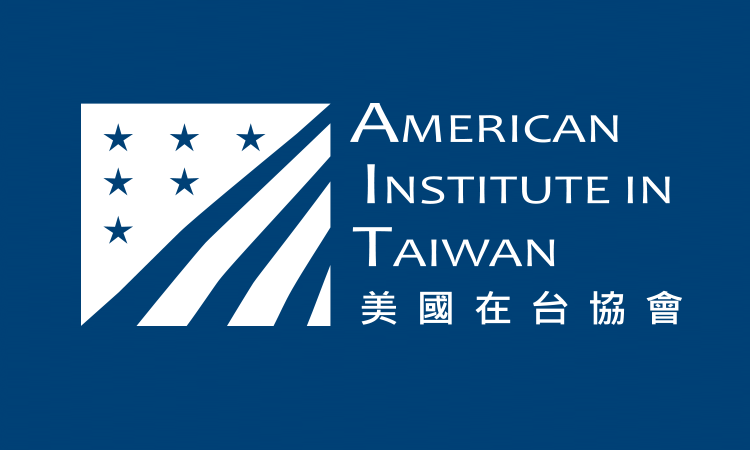OT-1953
July 5, 2019
Minister of Economic Affairs Shen, ITRI President Liu, distinguished guests, ladies and gentlemen, zao an!
It is my great pleasure to be here today at the undisputed birthplace of Taiwan’s technology industry – the Industrial Technology Research Institute. In many ways, ITRI was the world’s original innovation technology incubator. It has given birth to some of Taiwan’s and indeed the world’s most innovative champions, such as TSMC and many others. ITRI enabled Taiwan to make the transition from a manufacturing hub to a high-tech powerhouse, and as we move into the digital age, it is poised to help Taiwan become a full-fledged innovation-based economy.
ITRI has been one of our closest partners since its very founding. As many of you know, this year marks the 40th Anniversary of AIT. As part of our year-long AIT@40 campaign, the month of June was our Digital Economy and Technology month where we highlighted our technology cooperation through a regional workshop on network security, a Forum on Expanding Economic Ties in the Indo-Pacific, a Digital News Literacy Summit with Facebook, and the APEC O2O Summit. If it is OK with all of you, perhaps we can say June ended today so we can consider this event part of our AIT@40 celebrations!
For the last seventy years, the United States has been a champion of the global rules-based order. And this remains true today. This order has fostered peace, stability and prosperity throughout the world, and especially in the Indo-Pacific. This order provides the institutional foundation for the success of all of the firms gathered here today and that have been spawned out of ITRI. But this order depends upon everyone agreeing to play by the same basic rules of fair market competition. When economies, large or small, are able to flout the rules, force the transfer of intellectual property, protect national champions, steal trade secrets, and use massive market-distorting subsidies, it undermines the integrity of the rules-based system. Everything the United States is doing today has one very simple goal: to defend the rules based order from those who would betray its spirit. Defending this order helps all of us.
U.S. technology investment in Taiwan has been growing fast. It is not difficult to understand why companies are so committed to this market. It is because Taiwan is a trusted partner. When firms invest here, they feel confident that their intellectual property is safe, that trade secret protections will be enforced, that courts will adhere to the rule of law, and that the authorities are committed to shared democratic and free market values. As a result, many major U.S. technology firms are substantially increasing their investments in Taiwan in advanced manufacturing, artificial intelligence, and of course 5G.
The United States considers the development of 5G as one of the most important technological developments in the world today. 5G will be the foundation of the global digital economy for at least a generation. As 5G technology rolls out, it is vital that we work together to ensure the data and intellectual property all of you are working so hard to develop is protected from theft and manipulation. The unchecked influence of governments over companies poses threats to cybersecurity, national security, economic competitiveness, and human rights in other countries. This is why it’s so vital that power over 5G technologies be dispersed widely within a private sector protected by the rule of law and underpinned by democratic values. For the United States and many other partners, supply chains may shift, but the protection of core democratic values must remain a constant.
For decades, Taiwan has been a critical link in global technology supply chains. Taiwan is home to some of the world’s most advanced semiconductor and electronic component manufacturers, a deep pool of world-class engineers, highly adaptive technology support services, and innovative startups. Four years ago the United States and Taiwan launched the Digital Economy Forum to bring the U.S.-Taiwan economic relationship into the digital age. Under the DEF’s Small and Medium Enterprise Work Plan, the United States and Taiwan have rapidly increased cooperation among our innovative startups, in particular for women entrepreneurs. Through these efforts and Taiwan’s 5+2 Innovative Industries plan, Taiwan is rapidly making the transition to an innovation-based economy. The rest of the world has taken note. The World Economic Forum concluded last year that Taiwan has emerged as one of the world’s four “super-innovators.”
I would like to flag three areas in particular where I believe there is significant scope for closer U.S.-Taiwan technology cooperation: smart machinery, medical technology, and the circular economy. For decades, Taiwan has been making the machines that go into the factories of the world. Taiwan’s medical system is one of the most advanced and comprehensive in the world, creating in the process a rich store of data which can be harnessed for the development of new medical technologies. In the next 30 years, more than 2.5 billion people are expected to move into the world’s cities, making the development of sustainable smart cities and the circular economy both an economic and ecological necessity. By integrating American advances in artificial intelligence and Taiwan’s prowess in high-tech devices, we make natural partners to build the smart machines, medical devices, and sustainable smart cities of the future.
The United States is proud to consider Taiwan, and in particular ITRI, as one of our closest partners as we work together to build a new digital world.
Thank you.
This Official Text is also available on the AIT website at: https://www.ait.org.tw/category/speeches/
















![Video Thumbnail [Recovered]-01](../wp-content/uploads/sites/269/Video-Thumbnail-Recovered-01-1-750x450.jpg)






